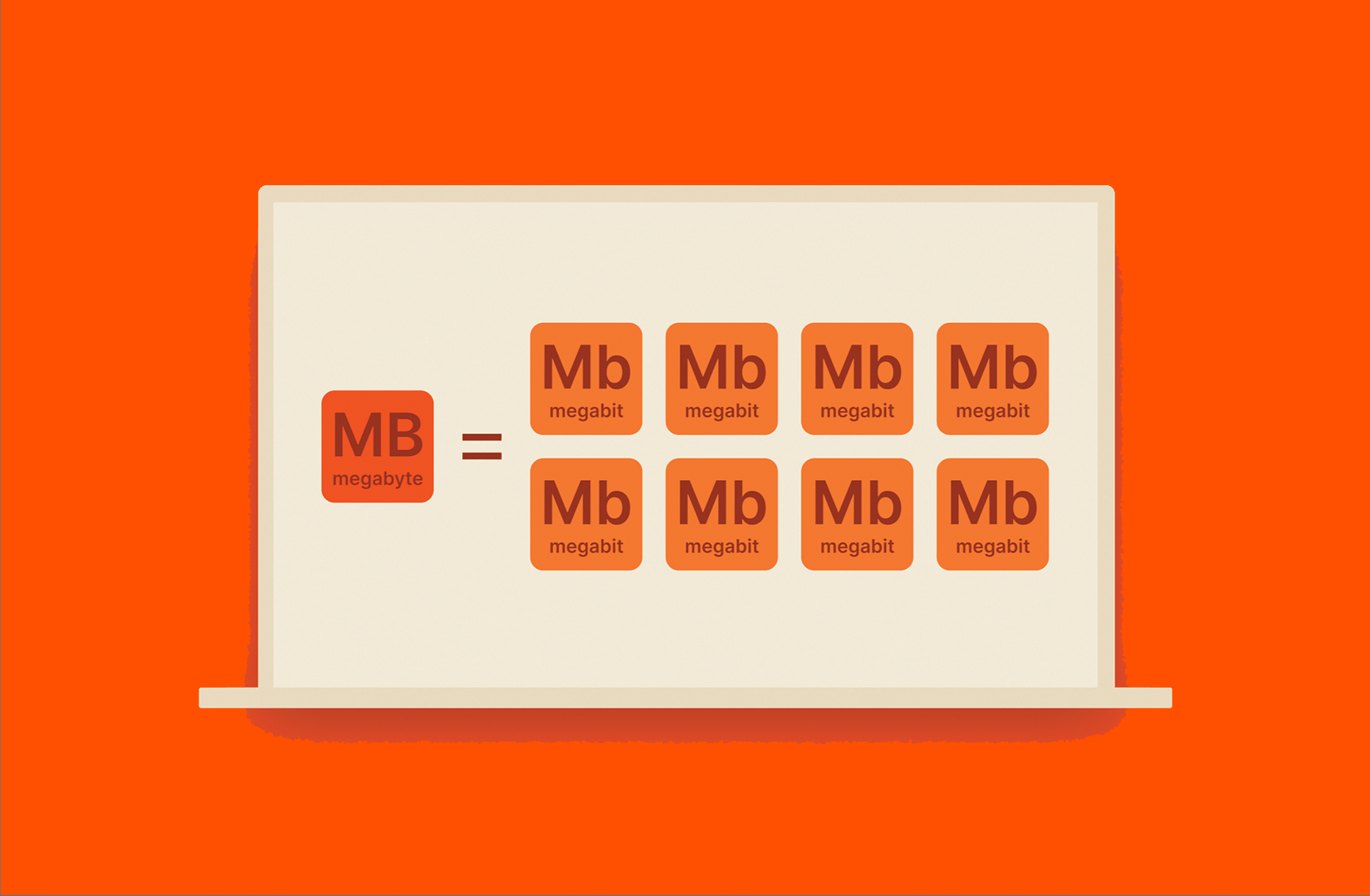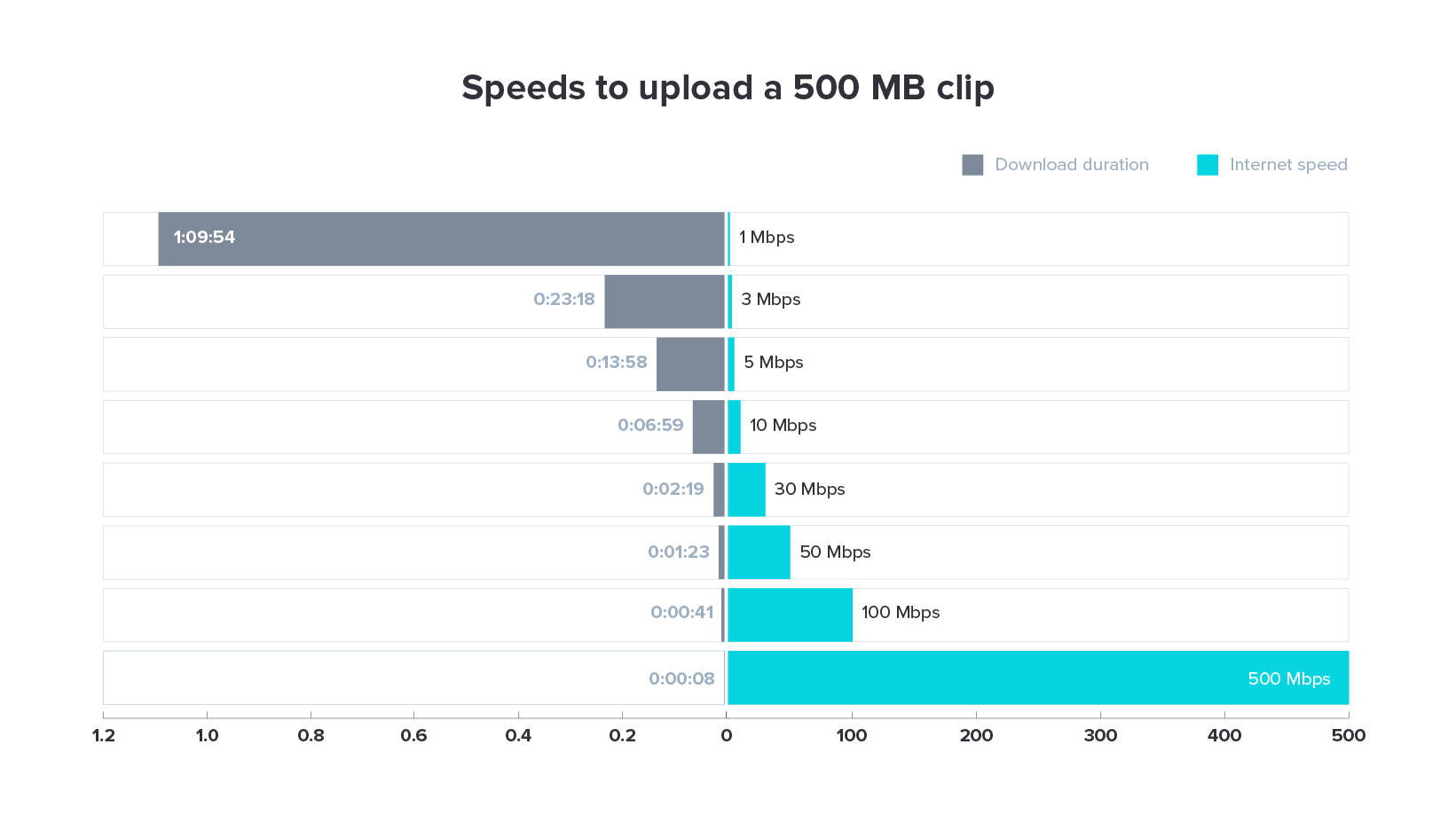Exactly how to Select the Right Internet Plan Based on Megabits Per Second
Wiki Article
Demystifying Megabits Per Second: An Overview to Choosing the Right Internet Plan
Recognizing the principle of megabits per second (Mbps) is important when picking an internet plan that straightens with your details needs. With the multitude of plans offered, how do you determine which one is right for you?Understanding Megabits Per Second

To understand the relevance of Mbps, it is very important to identify that it mirrors the optimum transmission capacity available for data transfer. For example, a plan providing 100 Mbps enables for the simultaneous transmission of data at that rate, though actual speeds may differ as a result of network blockage, range from the company, and the efficiency of your home network devices.
In addition, recognizing the distinction in between megabytes and megabits is critical. While megabits signify the speed of data transfer, megabytes (1 byte = 8 little bits) gauge the size of files. Downloading and install a 100 MB file on a 100 Mbps link in theory takes regarding 8 seconds, barring any kind of disruptions.
Eventually, selecting an appropriate Mbps ranking based on your family's internet use is vital for ensuring a satisfying online experience.
How Internet Rate Influences Activities
Internet speed plays an essential duty in determining just how successfully individuals can participate in various on-line activities. Various tasks call for varying levels of data transfer, and recognizing these demands can substantially boost user experience. For instance, basic tasks like surfing sites or examining emails typically call for lower rates, commonly around 1-5 Mbps. Streaming high-def videos demands a lot a lot more; a minimum of 25 Mbps is usually recommended to guarantee smooth playback without buffering.On the internet video gaming, an additional preferred task, additionally relies heavily on internet rate. A secure link of at the very least 15-25 Mbps can lower and offer an affordable side latency, which is necessary for real-time interactions. Video clip conferencing applications, increasingly essential for remote work, benefit from rates of at least 3-8 Mbps for clear audio and video clip quality.
In households with numerous customers, synchronised tasks can strain bandwidth. In such instances, higher speeds-- 50 Mbps or even more-- are a good idea to fit diverse requirements without a decline in efficiency. Hence, recognizing the partnership in between internet rate and certain online tasks is critical for selecting a proper plan that meets individual or family members needs effectively.
Different Types of Internet Plans
Choosing an ideal internet plan requires an understanding of the numerous alternatives readily available out there. Internet solution providers (ISPs) commonly supply a number of kinds of plans, each accommodating various customer requirements and preferences.Broadband strategies are the most common, offering high-speed internet via wire or DSL connections. These plans are appropriate for homes that participate in numerous online activities simultaneously, such as streaming, video gaming, and video clip conferencing - Megabits Per Second. Fiber-optic plans, while much less commonly readily available, provide the fastest speeds and the best efficiency, making them optimal for tech-savvy customers or those with comprehensive transmission capacity needs
Set wireless and satellite plans serve areas where traditional wired links are unreliable or unavailable. While they can be advantageous for rural individuals, they usually include higher latency and lower rates compared to broadband options.
Mobile hotspot plans enable individuals to access the internet through cellular networks, offering adaptability for those that require internet on the move. Last but not least, some ISPs provide tiered plans with differing speeds and data caps, Discover More Here making it possible for customers to pick a plan that lines up with their use patterns and budget. Comprehending these different kinds of internet strategies is critical in making an informed decision.
Establishing Your Rate Requirements
Often analyzing your speed requires is vital for selecting an internet plan that suits your lifestyle. Recognizing the needs of your home or organization can aid in choosing a suitable bundle.
Next, take into consideration the tasks you take part in online. Standard tasks such as surfing and emailing commonly require reduced rates, around 1-5 Mbps. Nonetheless, streaming video clips in high meaning, on-line video gaming, or large data downloads may demand speeds upwards of 25 Mbps or even more.
In addition, consider the number of individuals. Megabits Per Second. A home with numerous people streaming web content or gaming at the exact same time will certainly need significantly a lot more data transfer than a single-user circumstance
Lastly, bear in mind that internet rates can be impacted by elements such as network blockage and the high quality of your router. By extensively examining your rate needs, you can make an informed decision, making certain that your internet plan aligns with your everyday usage and future needs.
Tips for Selecting the Right Plan
Selecting the best internet plan calls for mindful factor to consider of a number of essential factors to ensure it meets your demands. Assess your use patterns-- whether you are streaming, pc gaming, or functioning from home-- given that these tasks require different bandwidth levels. Typically, families with several individuals or high-bandwidth activities will profit from higher-speed strategies.Following, take a look at the data caps related to numerous plans. Some providers enforce limitations on data use, which can cause added fees or throttled rates upon surpassing those limits. Picking an unlimited information plan might be helpful for heavy customers.
Additionally, consider the he has a good point dependability of the provider. Study client reviews and make inquiries regarding the company's uptime and customer care performance. A cheaper plan may not be a bargain if it lacks integrity or support.
Lastly, examine promotional offers and contract terms. While initial prices can be attractive, know the lasting expenses and whether the plan requires a prolonged agreement. By weighing these aspects, you can make an informed choice that straightens with your internet requirements and spending plan, ensuring you choose one of the most appropriate plan for your household.

Verdict
In verdict, comprehending megabits per second (Mbps) is vital for selecting an ideal internet plan. Ultimately, choosing a strategy with sufficient transmission capacity makes sure satisfaction and performance in navigating the electronic landscape.Understanding the idea of megabits per second (Mbps) is important when selecting a net plan that lines up with your details needs. Therefore, recognizing the relationship in between internet speed and certain online tasks is vital for picking a suitable plan that satisfies specific or family demands successfully.
Mobile hotspot plans enable users to access the internet with cellular networks, providing versatility for those that need internet Related Site on the go. Some ISPs supply tiered plans with varying information and speeds caps, making it possible for customers to choose a plan that lines up with their use patterns and spending plan.Regularly evaluating your speed needs is crucial for choosing an internet plan that suits your lifestyle.
Report this wiki page